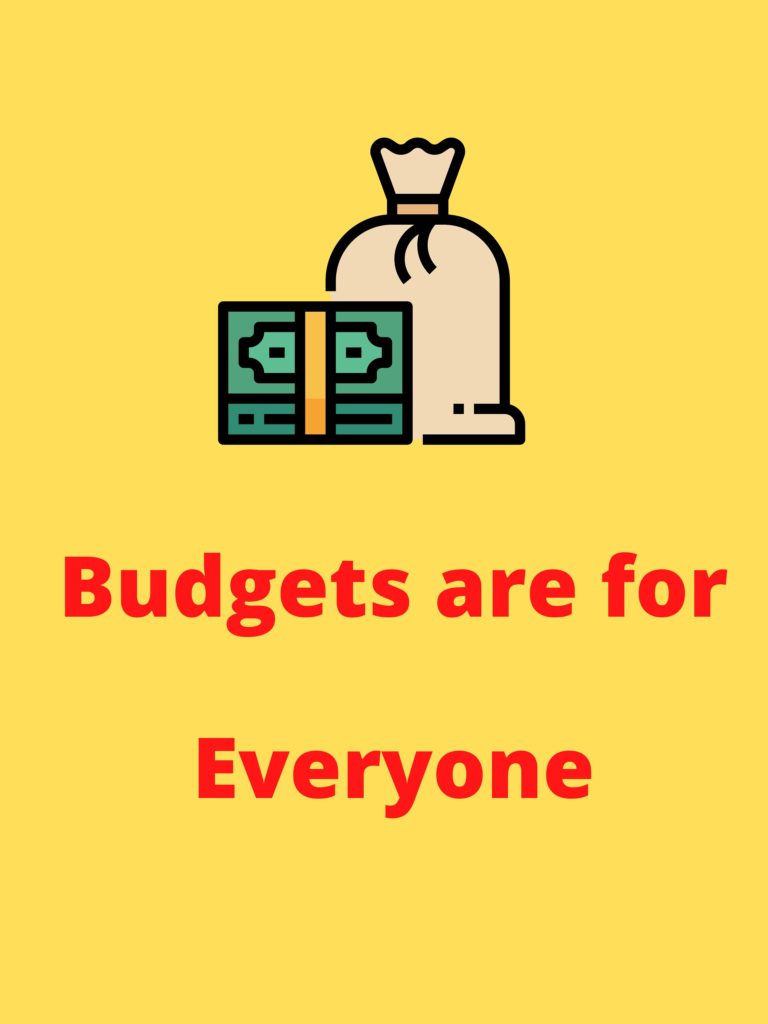
Welcome to my blog How not to bust your budget

Year in and year out we hear about budgeting, but how many of us actually commit to building one. Chances are someone approached you about building a budget so I chose to investigate what budgets are all about. The good news is that I am going to walk you through how to build one, and how to use it.
My name is Scott Rulon and I have been a professional accountant for 33 years, and I have helped hundreds of people navigate budgets or as I like to call them “flexible spending plans”
What is a budget?
A clean and simple explanation is that it is a summary of all planned income and expenses for a specific period of time. In fact it may require some flexibility if income does not cover expenses. Budgets tend to be forward looking, but we often have to look back at history to construct them. They should be considered an ongoing tool that can be used on a regular basis.
What are the basic parts of a budget?
Income can include sales, services, commissions, interest and other miscellaneous pieces. Expenses can include housing, food utilities, insurance, medical, debt, and school expenses. If your income exceeds your expenses you are considered to be profitable.
?
The government budgets at the federal, state and local levels. Corporations and Churches budget. In fact organizations with greater than 250 employees both monitor spending and put forth “Annual Planning & Budgeting” more than 63 percent of the time. You always want to have more money coming in than you have going out because if you spend more than you make you will always be broke.
In fact I remember speaking to a farmer one year and he said we have a great year our revenue was $400,000, but unfortunately our out flow was $500,000. Ouch!
So whether we are talking personal budget or small business budget monitoring your finances is incredibly important.
3 Keys to Budgeting
Not only do budgets provide a solid financial plan, and monitoring device, but a terrific evaluation tool to make sure your financial house is in order.
Financial Plan
A great time specify and put in order your or your business’s future expense plans. Can you count on enough revenue to meet future expenses. So whether your stakes holders are investors or even members of your family, concrete evident of your financial direction can be written down and provided to others.
Control mechanism
Sets spending limits in certain categories. At our house we literal use a a type of electronic envelop system to pay for things, but once the cash is gone; its gone. Containing your costs to certain amounts can also help to optimize profit. You can also look at contingencies, and plan for them before they happen. Putting money in a car expense fund might be an excellent example as car repairs are not cheap any more. It can also help you make confident and sometimes fun decisions like saving up for vacation.
Evaluation Tool
You can analyze difference between actual and budgeted spending. This allows you to make adjustments for items in the future. You can realize whether you are on task or not for your operational goals, and measure whether you achieved them. Also you can compare yourself towards certain benchmarks to see if you are within norms.
Income
What can you realistically earn or sell within a given period? Is their seasonality to your income flow? Like farmers do you have a harvest and a planting season, and do you need to diversify your income in different ways. When you finish a job how long does it take to get paid. Do you find certain portions of your income or expiring and on the way out.
Times are gone when you can just count on one job or company to supply your needs.
Building the Budget
How many employees do you have or family members you need to support? What kind of wage or salary amounts do you have to meet. Also do not forget about withholding the taxes. Uncle San will expect his due at the end of the year. Let’s not forget about things like childcare, health insurance, life insurance, and saving money for a healthy retirement.
Expenses
What are your past and present spending patterns? Will you have new expense items on the horizon like send a grown child to college? Do you need to break things like auto insurance down into monthly pieces even though they may only occur once or twice a year. I always find it best to budget in items like saving and pay them out just like expenses. What about those pesky items like mortgage payments or rent, and do not forget about the utilities. You may be in a situation where certain seasons of the year where utilities greatly increase in either Summer of Winter. Sometimes we even need to learn how to put our cell phones in check due to excessive data usage. The biggest area of increase that I have seen is the never ending increases in rent.
Managing the budget
Start the process in early October each year so that you will be ready to roll by the time the New Year arises. Just because you have money in your account does not mean you are meeting your budgetary goals. Set a time each month to make sure you are on target.
My #1 Recommendation
If you landed on this blog, you want to actually know how to make and keep better control of your money ight?
Cash is always king in the world of budgeting and lifesyle.
If you want to learn how you can increase your cash flow without trading your time for money…

Once you learn this skill set and the mindset, the sky is the limit when it comes to cash flow.
From there you can invest in appreciating assets and build long term wealth.
Remember to follow me on social media below because I am actually real and want to serve you.
I hope you enjoyed my How to not bust your Budget and if you have any questions feel free to ask in the comments below…
Follow me on Social media below:
By the way, Follow me on Social media below:
Subscribe To My YouTube Channel Here.
See you at the top,

-Scott Rulon
P.S. Tired of failing in business then click here and check this out to take your game to the next level.
Additional resources
Shaklee Review – (2021) Legit or scam?
HyperFund Launches HyperMining That Promises Rewards of Big ROI